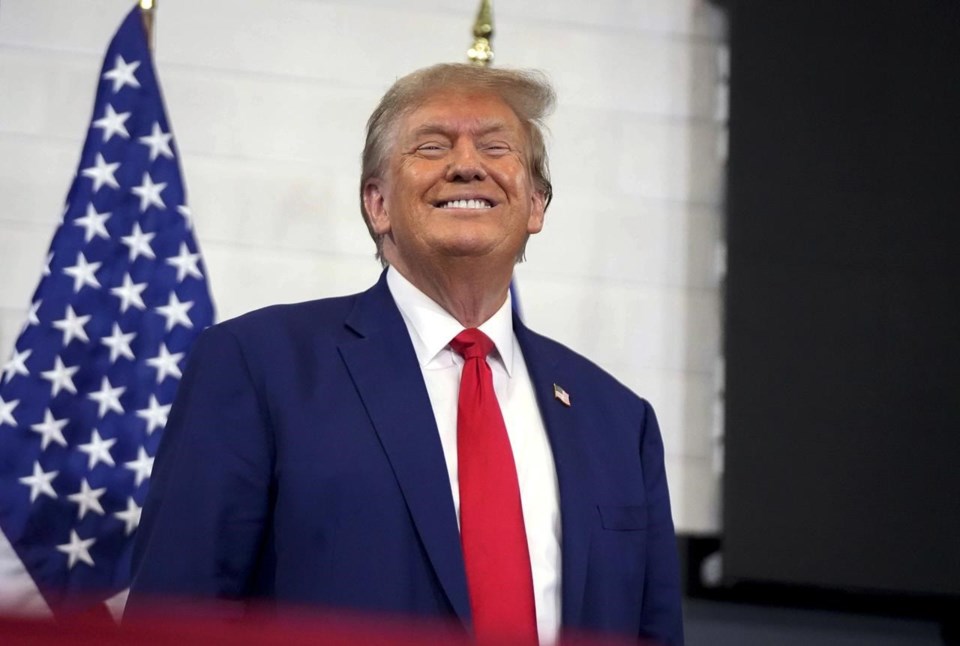WASHINGTON (AP) — Lawsuits against Donald Trump brought by Capitol Police officers and Democratic lawmakers over the U.S. Capitol riot, can move forward, a federal appeals court ruled on Friday.
A three-judge panel of the U.S. Circuit Court of Appeals denied Trump's request to dismiss the civil lawsuits that accuse him of inciting the violent mob on Jan. 6, 2021. But the court said it's ruling was not the final word on whether presidential immunity shields the Republican from liability in the case and said the judges express “no view on the ultimate merits of the claims” against the former president.
Trump had challenged a lower court's ruling denying his effort to throw out the lawsuits, arguing his words involved “matters of public concern” and fall within the scope of absolute presidential immunity. U.S. District Judge Amit Mehta ruled last year that Trump’s words during the rally before the storming of the Capitol were likely “words of incitement not protected by the First Amendment.”
The decision comes as Trump’s lawyers are arguing he is also immune from prosecution in the separate criminal case brought by special counsel Jack Smith that accuses Trump of illegally plotting to overturn his election loss to President Joe Biden. That case in Washington is one of four criminal cases Trump is facing as he tries to retake the White House in 2024.
The ruling underscores the challenges facing Trump as he tries to persuade courts, and potentially juries, that the actions he took in the run-up to the riot were part of his official duties as president. The judge presiding over his Capitol riot criminal trial is expected to also reject that claim.
Even as the appeals court turned down Trump’s presidential immunity arguments, it took pains to note that it was not being asked to evaluate whether Trump was responsible for the riot or should be held to account in court. It noted that he could still seek to argue that his actions were protected by the First Amendment — a claim he’s also made in his pending criminal case — or covered by other privileges. And he’ll still have the opportunity, as the civil case proceeds, to try to prove that his actions were taken in his official capacity as president and that he is therefore immune from liability.
A lawyer for Trump, Jesse Binnall, did not immediately return a phone message seeking comment on the ruling.
One of the lawsuits, filed by Rep. Eric Swalwell, a Democrat from California, alleges that Trump directly incited the violence at the Capitol "and then watched approvingly as the building was overrun.” Two other lawsuits were also filed, one by other House Democrats and another by officers James Blassingame and Sidney Hemby.
They have argued that Trump was acting “far beyond the ‘outer perimeter’ of his office when he conspired to use violence and intimidation to prevent members of Congress from carrying out their constitutional duty to count Electoral College votes and certify the results of the 2020 presidential election.”
The current appeal was decided by a unanimous three-court panel that included Judge Gregory Katsas, a Trump appointee to the bench who authored his own concurring opinion.
Alanna Durkin Richer And Eric Tucker, The Associated Press

